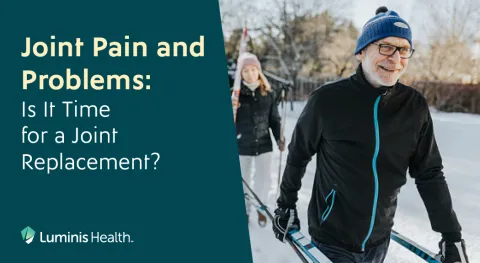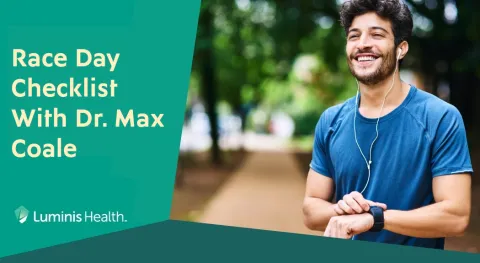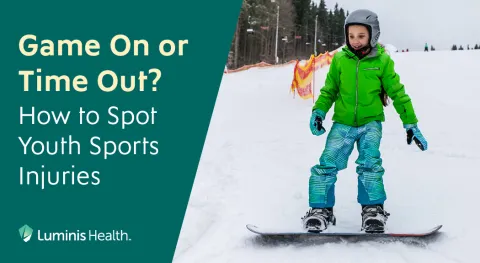Osteoporosis is a disease that happens when your body loses too much bone, makes too little bone or both. This leads to weaker bones that can break more easily.
In honor of World Osteoporosis Day, Mandy Fawcett, a physician assistant in Luminis Health Orthopedics’ Osteoporosis Program, sat down for a Q&A to discuss her work treating patients with osteoporosis and why it’s so important to take good care of your bones.
Mandy, you work with Orthopedic Surgeon Dr. Christina Morganti at Luminis Health Orthopedics in the Osteoporosis Program. What got you interested in the field?
I was originally a finance major and, when I graduated, worked at Legg Mason in Baltimore. But I quickly became bored and decided I wanted to change careers. What better way to do that than to become a health professional? So I went back to school and became a physician assistant. I was hired to help Dr. Morganti with the Osteoporosis Program at Luminis Health Orthopedics as a new graduate, and got on-the-job training in osteoporosis. I have learned so much since I started here.
Treating patients with osteoporosis is especially gratifying because osteoporosis is a disease that affects so many people. Fifty percent of women and 25 percent of men over the age of 50 will experience an osteoporotic fracture. Unfortunately, the reality is that 80 percent of people who need treatment for osteoporosis do not receive it.
READ MORE: True Story: What I wish I had known about my bones when I was younger
What are some of the issues you see osteoporosis patients worry about the most?
The biggest obstacle that we have to overcome is that many patients are very afraid of the side effects of the medications we prescribe. I find that there is a lot of misinformation in the general public about these adverse reactions. In fact, the chance of having one of these side effects is extremely rare. Some studies estimate it’s one in 100,000. However, the chance of having an osteoporotic fracture can be really high.
What are some of the more interesting new things in osteoporosis treatment or nutrition?
Dr. Morganti and I firmly believe that everyone should maximize non-pharmaceutical treatment for their bones. For example, all postmenopausal females should consume a total of 1200 milligrams of calcium, preferably from food sources. Many people also benefit from vitamin D supplements. We usually start with about 1,000 international units (IU) daily, and adjust the dose of vitamin D based on blood work.
There is new medication on the market as well. Recently, a new bone-building drug came to market that may be a cheaper and promising alternative to the other two bone-building drugs now available. Dr. Morganti and I are monitoring it now that is on the market and will make a decision as to whether we think it is a good option for our patients.
What type of exercise should patients do?
Exercise is important. Everyone should do an enjoyable, lower-intensity exercise like walking at least 30 minutes daily, perform weight-bearing exercise two to three days per week, and balance train one to two days per week.
Learning the proper technique to do exercise is extremely important in order to avoid injury. In general, you should avoid exercise that involves forward flexion of the spine, like when you do crunches, or too much rotation. Osteoporosis patients should only attempt higher-impact exercises like jumping with great caution, and only if good, strong muscle has been developed to protect the bones. Patients should be careful with contact sports or sports where you can slip, like skating, since falls can lead to fractures.
What are some of the worst things you can do for your bones?
Smoking cigarettes is very bad for your bones. Studies have also shown that drinking more than three units of alcohol a day or drinking excess caffeine can be harmful as well.
Authors
Mandy Fawcett is a physician assistant with the Osteoporosis Program at AAMC Orthopedics. She can be reached at 410-268-8862.
Christina Morganti, MD, is an orthopedic surgeon and medical director of the Osteoporosis Program at Luminis Health Orthopedics. She can be reached at 410-268-8862.
Originally published May 23, 2019. Last updated Oct. 19, 2020.



